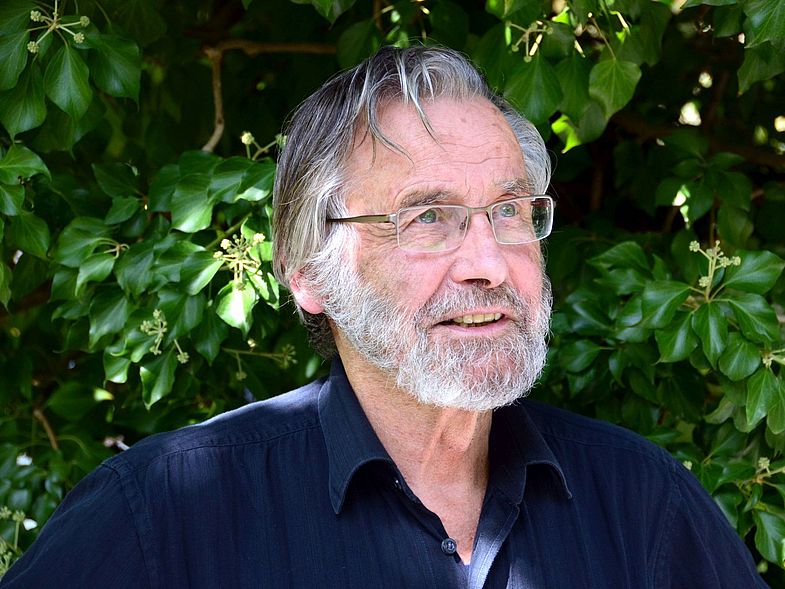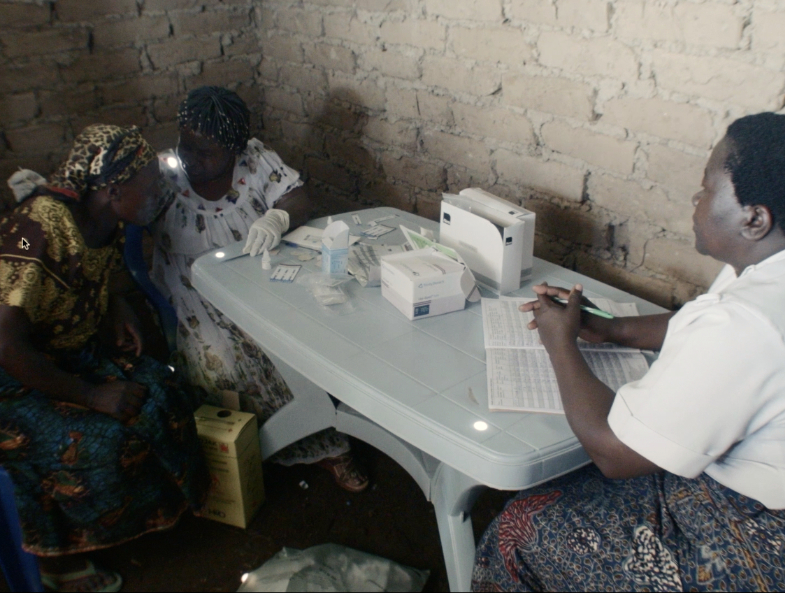With a strong step for his age, Hanns Walter Huppenbauer walked through the corridors of the Mission House until recently. That's how a landlord walks through his house, I once thought.
And when he took a break with the Mission 21 staff in the restaurant, you could hear him telling anecdotes in a carrying voice about how it used to be here. It was clear that he was behaving as if he were at home: He had spent his childhood here after 1930, climbing up the drainpipes of the gutter, for example, as he once recounted. Later, he spent important years of his professional life here. In the last years he was like an old farmer on his farm. He no longer interfered in the day-to-day business, even though he always had a clear opinion and would have done things differently.
There have also been disappointments for him here, but so what? He was never bitter about it. On the contrary, he remained "eaten up" by mission, committed "skin and hair" to what mission was in his opinion and experience.
Basel-Aargau-Ghana: Theology in the context of everyday life
I first met him in 1973. He was an examiner for the theological exam. The older students gave the all-clear: "Huppenbauer as an expert? No problem, he is easy-going. Try to establish a reference to Qumran, then you've got him!"
After studying theology in Basel, he had studied the Bible scrolls discovered in Qumran and earned a doctorate. Then he took over a pastorate in Aargau.
In 1964 he then went to Ghana as a lecturer for the Basel Mission. There he sharpened his theological profile: Doing theology? Only in the context of everyday life! Teaching theology in Africa? In Africa, Christianity lived before that in Europe. The right Christianity? It always takes shape as part of the respective culture. None has priority.
President and Central Secretary of KEM
In 1970 he returned from Ghana. First he became president, then central secretary of the new "Cooperation of Protestant Churches and Missions". In the decolonization after World War 2, world ecumenism had discovered: mission societies are Commissioners of the (visible) churches, not just the (invisible) church. The latter was indeed a creative element in the pietistic founding period. In the global 20th century, Christianity had to be realized as an interactive interplay of cultural "Christianities.
From this time come terms like: "mission in counter-traffic", "partnership at eye level", "advocacy" as support of the church partners in the world south in their political concerns to the rich Switzerland. Mission was a "relationship process": perceiving each other, learning and critical questioning. Mission is a constantly improving coming-together of the church. In this process, the Lord is in the center, not a historical-cultural form of church, even in a European shape.
Careful historian without prejudice
Hanns Walter Huppenbauer was confronted with the problems of apartheid at that time. That was when Swiss banking, business and political circles granted legitimacy to the apartheid regime. For Hanns Walter Huppenbauer there was no compromise. He has been committed to the South Africa Mission ever since, even after the end of apartheid.
I got to know Hanns Walter Huppenbauer better in 2010, when he took over the presidency of Mission 21 in the face of a crisis. I really came to appreciate him during the preparations for the anniversary of the Basel Mission in 2015. As a careful historian, he uncovered important documents from the mission archives. They put the early history of the mission in a different light. They refuted many prejudices against this mission. In this way, he contributed a great deal to the historical anchoring of the jubilee narrative "Unashamed Hope".
Now he has passed away at the age of 88. The Mission House will miss his footsteps in the hallway, his anecdotes, and his wealth of knowledge and experience.
Peter Felber






